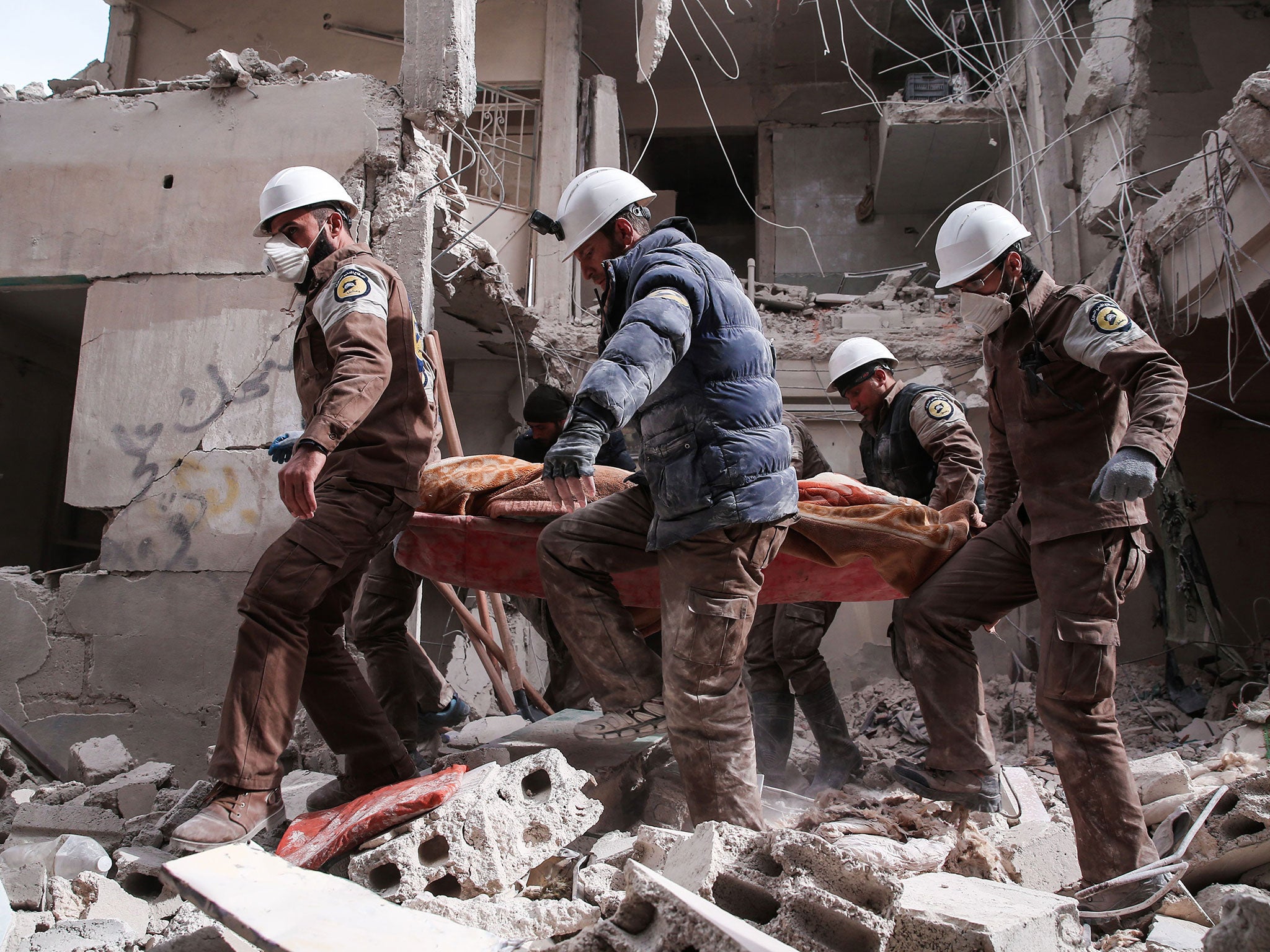Syrian civil war peace talks begin in Geneva but UN envoy warns breakthrough is not expected
Steffan de Mistura says Russia has asked Syrian regime to halt air strikes during discussions

Your support helps us to tell the story
From reproductive rights to climate change to Big Tech, The Independent is on the ground when the story is developing. Whether it's investigating the financials of Elon Musk's pro-Trump PAC or producing our latest documentary, 'The A Word', which shines a light on the American women fighting for reproductive rights, we know how important it is to parse out the facts from the messaging.
At such a critical moment in US history, we need reporters on the ground. Your donation allows us to keep sending journalists to speak to both sides of the story.
The Independent is trusted by Americans across the entire political spectrum. And unlike many other quality news outlets, we choose not to lock Americans out of our reporting and analysis with paywalls. We believe quality journalism should be available to everyone, paid for by those who can afford it.
Your support makes all the difference.Syrian peace talks sponsored by the United Nations have resumed in Geneva after they fell apart amid escalating bloodshed nearly a year ago.
UN Syria envoy Steffan de Mistura held his first meeting with the delegation of the Syrian government this morning and later met the head of the opposition delegation and a senior member of the largest opposition group.
The talks mark the latest bid to end the country's six-year civil war, in which hundreds of thousands of people have been killed and millions displaced.
However, Mr de Mistura has played down expectations for the talks, saying he was "not expecting a breakthrough".
Opposition groups believe they will feature in a "greater role" in this round of talks, reflecting the changing dynamics inside Syria.
Factions are drifting away from the exiled opposition leadership and moving closer to ultra-conservative groups such as Ahrar al-Sham and the al-Qaeda linked Jabhat Fateh al-Sham.
In December, Syrian President Bashar al-Assad's forces were able to expel rebel fighters from their longtime stronghold on the eastern side of the city of Aleppo, which was Syria's economic capital before the war began.
Mr de Mistura said Russia had asked the Syrian regime to halt air strikes during the Geneva talks.
Speaking ahead of the meeting, an opposition delegation member said they hoped to achieve "at least something at the human dimension: lifting the siege in certain areas, getting aid to those who are besieged."
He also hoped there would be serious work on the issue of political transition, a sticking point of past talks. "The world has to end this saga. The world has to end these brutalities," said Yahya al-Aridi.
Mr de Mistura also met with a group of Syrian women who came to push for the discussion of the fate of detainees and abducted people in the Syrian conflict. They held a symbolic moment of silence together.
"There are thousands and thousands of mothers, wives, daughters who are hoping that at least this aspect will be one of the benefits of any negotiation," he said.
The talks come after ceasefire discussions in Astana, Kazakhstan, which were coordinated largely by Turkey and Russia, who have backed opposite sides in the bloody civil war.
In those meetings, the two sides sat face-to-face and a fragile ceasefire has since mostly held, though daily violations have occurred.
Russian President Vladimir Putin has voiced hope for the success of a political settlement in Syria, saying it will help defeat the “terrorist malaise.” Mr Putin said at a meeting with Russian seamen today that Moscow's goal in Syria is to help stabilise what he called the legitimate government of Syrian President Bashar al-Assad and fight international terrorism.
Russia has conducted their air campaign in Syria since September 2015, helping turn the tide in Mr Assad's favour, and earning the ire of a number of Western governments, particularly France.
Mr Putin claimed the Russian military action had helped create conditions for talks between the government and the opposition in Kazakhstan's capital, Astana. He voiced hope that the process launched in Astana will be developed at the Syria peace talks in Geneva.
After meeting Mr Assad's top negotiator at the talks, Russia's envoy to the United Nations said demands from rebels and their Western and Arab backers for Mr Assad to step down were “absurd”.
“The delegation of the (Syrian) government arrived in Geneva with constructive instructions to reach progress at these talks,” Ambassador Alexei Borodavkin told reporters.
“The agenda of these talks is not yet ready, as far as I understand,” he said. He was hoping for progress on creating a government of national unity, drafting a constitution and scheduling elections, as mandated by a UN resolution, he said.
The UN's children's agency urged all parties at the Geneva talks to put Syria's children first in attempting to bring about an end to the civil war.
“Since the start of this year, at least 20 children have reportedly been killed in attacks and many more injured, including a one-day old baby girl injured when her home was shelled in rural Damascus," Unicef's regional director Geert Cappelaere said.
"In addition, nearly two million children remain largely cut off from urgently needed humanitarian assistance.
“The numbers are a grim indication that the cessation in hostilities announced last December has yet to result in real gains in protection and humanitarian assistance for all children in Syria."
Join our commenting forum
Join thought-provoking conversations, follow other Independent readers and see their replies
Comments